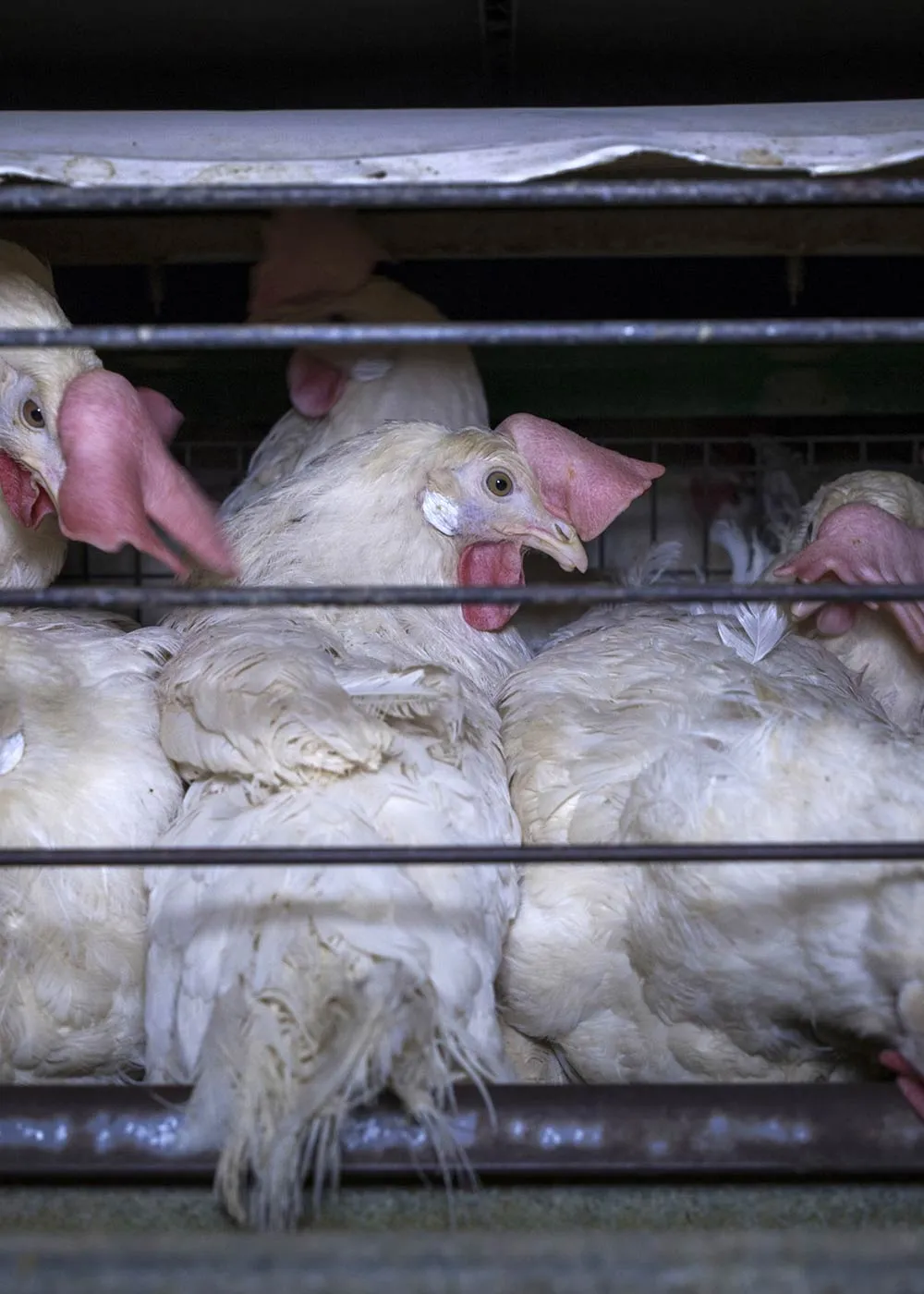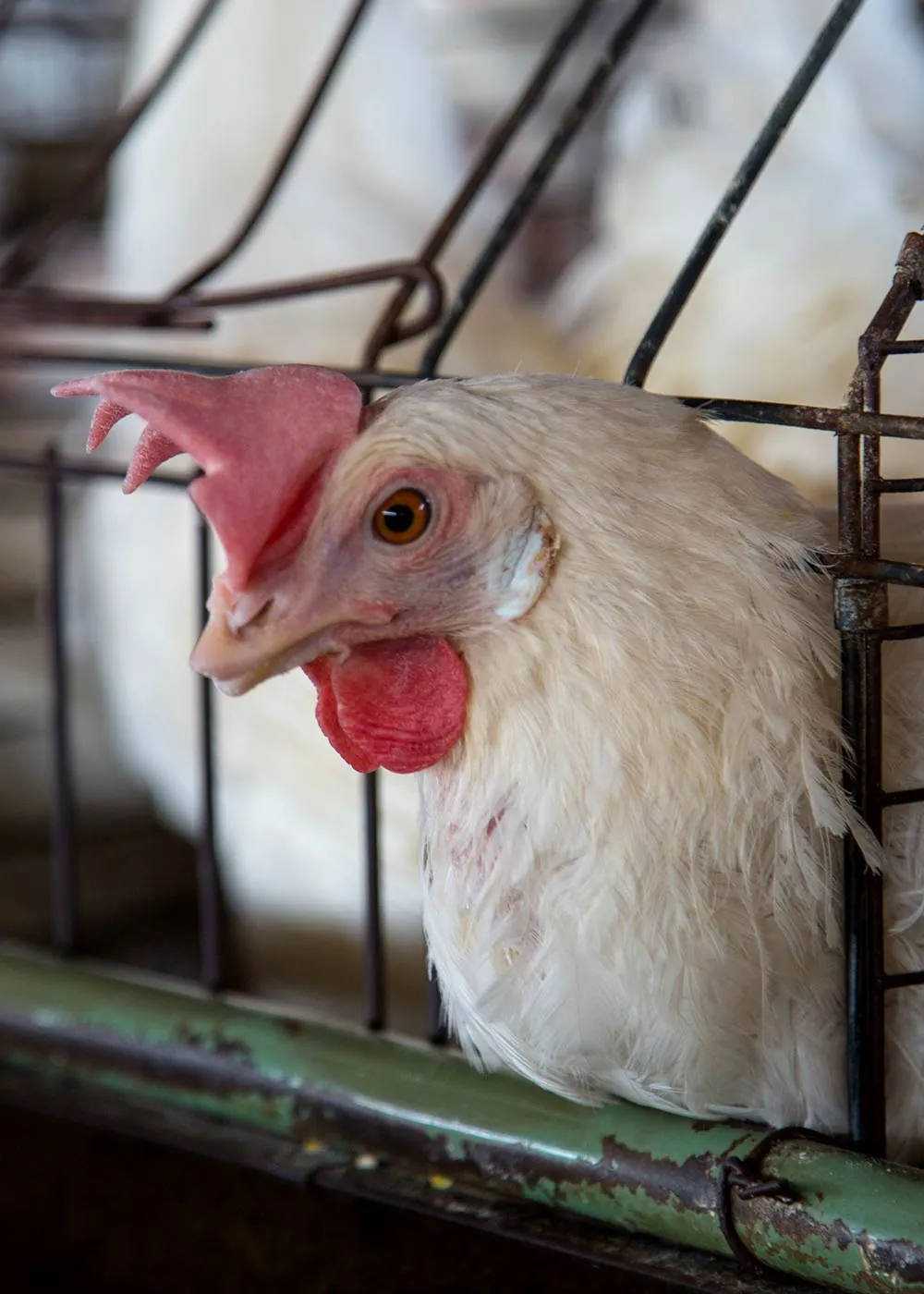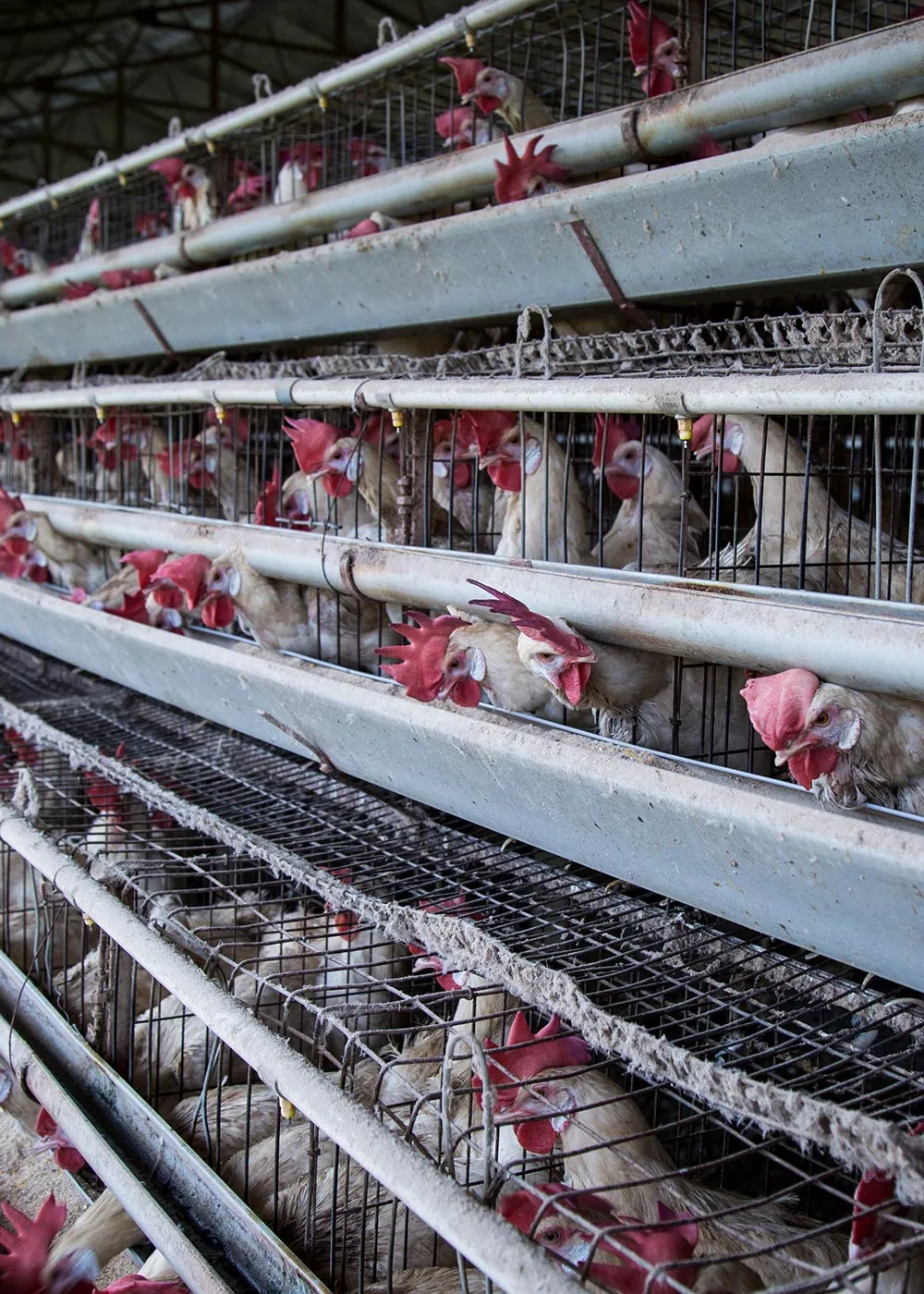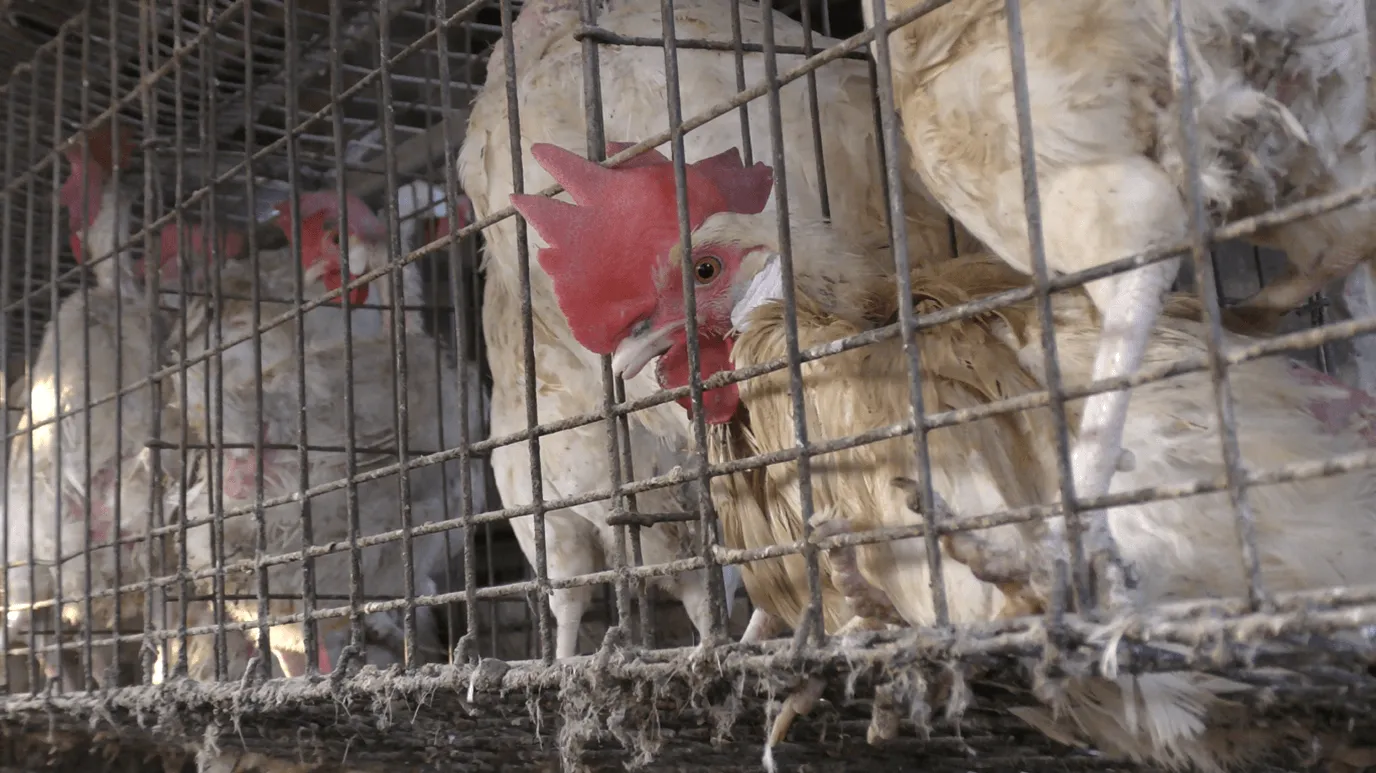

THE LIFE OF A CAGED HEN
33 Hours of Suffering: The real cost of an egg.
WHAT’S WRONG WITH EGGS?
“Hens are very social animals who like to forage for food, take dust-baths, perch, and take care of their families. Selectively bred to produce the maximum number of eggs, hens spend up to two years crammed in cages no bigger than two A4 sheets of paper. The cages are so small and crowded that hens cannot even spread their wings or exhibit other natural behaviors.”

A DEADLY BEGINNING
Male chicks cannot lay eggs and are not the chicken breed used for meat. Deemed worthless by the egg industry, after being separated from the females, they are grinded, drowned, burnt, crushed and suffocated, or fed live to fish.
INTENSE CONFINEMENT
“Hens are put in such small cages that they often step on each other in an attempt to find space to move. Their feet become deformed due to the wired floor of the cages. They live in overcrowded cages which are usually stacked one on top of another, causing urine and feces to fall onto birds in lower cages. The litter creates huge piles underneath the stacked cages and is only disposed of once every few weeks. This lack of timely disposal leads to diseases and mortality among the birds. Many a time, you will find hens with missing feathers and suffering from skin irritations, probably due to the high concentration of ammonia from their litter. Because of the living conditions, hens often die in their cages. They are sometimes left to rot in the same space alongside living birds.”
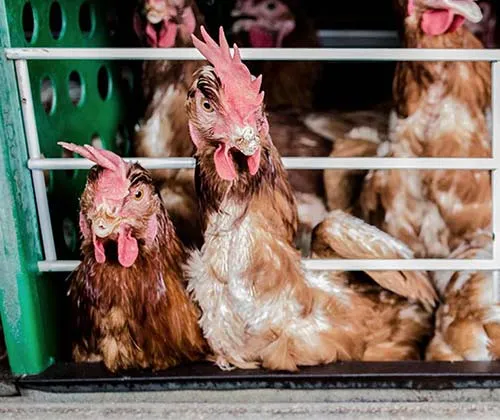
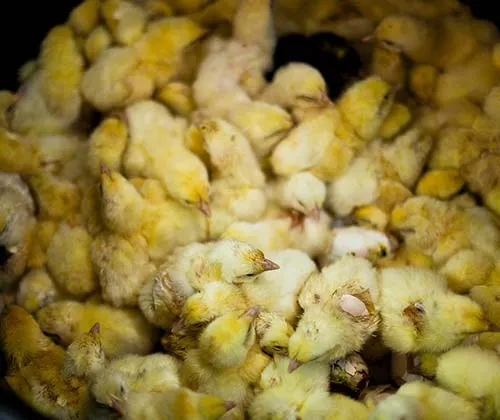
MUTILATED AND ABUSED
Hens are mutilated in the egg industry. Due to the stress of such intense confinement, hens engage in unnatural behaviours. Self-mutilation and even cannibalism are common. As a result, workers cut off a portion of their sensitive beaks without any painkillers.
BY THE NUMBERS
BEYOND THE CRUELTY
The egg industry is detrimental to both our health and the planet.

EGGS AND THE ENVIRONMENT
Much like the animal agriculture industry as a whole, factory egg farms have major environmental consequences. For every egg consumed, a half a pound of greenhouse gases are produced. Aside from the large amounts of ammonia and carbon dioxide produced, the egg industry also uses large amounts of pesticides. These pollute local waterbodies and air.
EGGS AND YOUR HEALTH
“Consuming eggs comes with several risks to our health. The inside of eggs that appear normal can contain E Coli and Salmonella – dangerous pathogens that can make you sick. Many chickens carry these bacteria which can contaminate the inside of eggs before the shells are formed. Eggs can also become contaminated from the droppings of birds. Symptoms of contamination are diarrhea, fever, abdominal cramps, headache, nausea, and vomiting. Experts have noted that highly contaminated egg shells can contaminate other food items once stored in the fridge.”
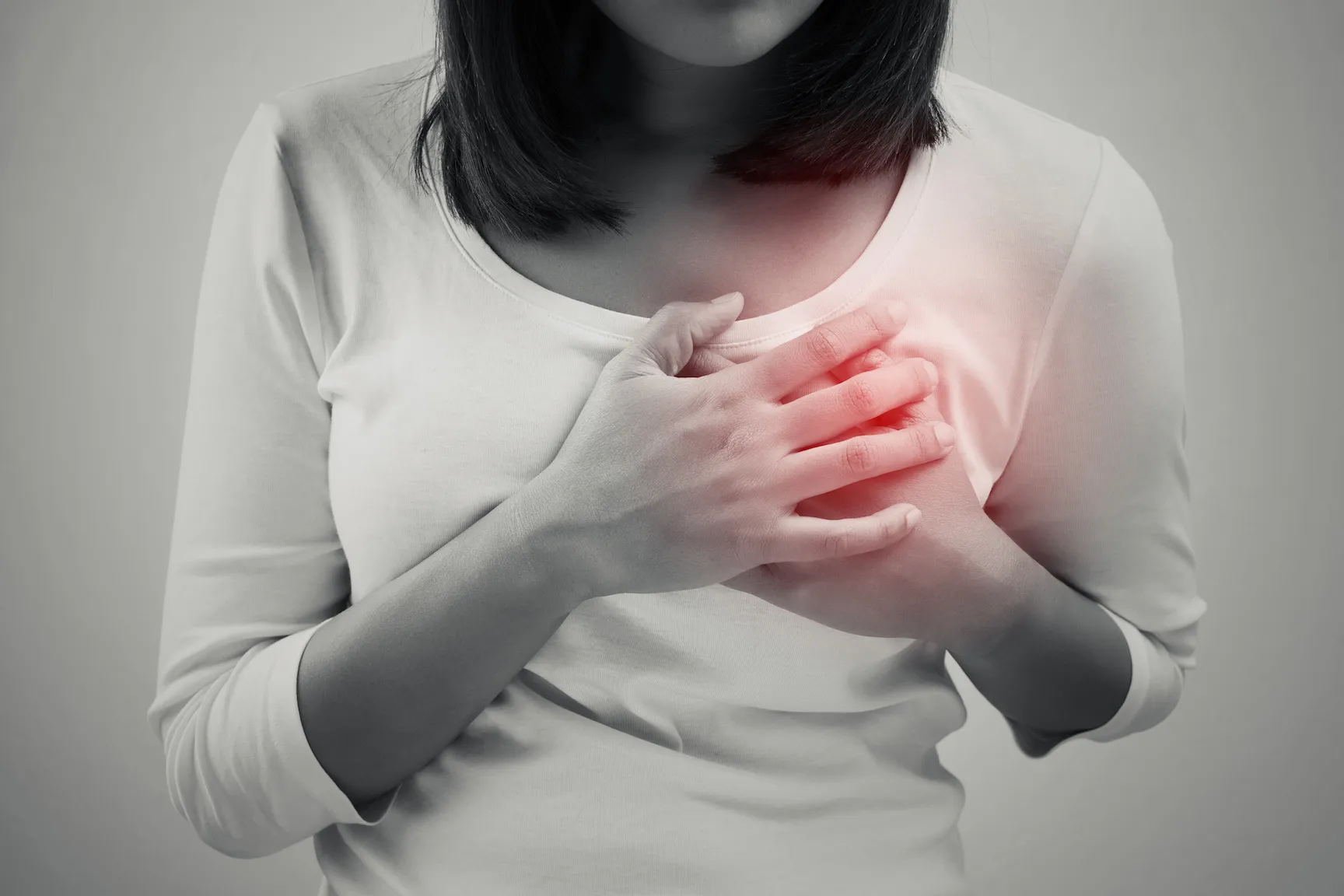
RELEVANT CAMPAIGNS
Hens used for their eggs suffer immensely. Animal Equality’s investigators are working in tandem with our corporate outreach department to help expose cruelty, educate the public, and obtain corporate commitments to ban cages.
A GLOBAL SHIFT TOWARDS BANNING CAGES
Animal Equality works globally to reduce the suffering of hens. Our Corporate Outreach department has successfully obtained dozens of cage-free commitments improving the lives of over 10 million hens every year.
FIRST EVER INVESTIGATIONS TO HELP HENS
Animal Equality presented a first of its kind investigation into the condition of poultry in India, covering both layer hens and broiler chickens. The findings of these investigations were submitted to the Law Commission of India in a report along with a list of recommendations for the welfare of chickens. Animal Equality’s report also pointed out to the existing animal welfare, food safety and transport laws which are routinely violated.


WHAT CAN I DO TO HELP?
Hens are smart, social, sensitive animals who deserve a much better life than this. Helping them is now easier than it has ever been before. Simply leave eggs out of your diet.

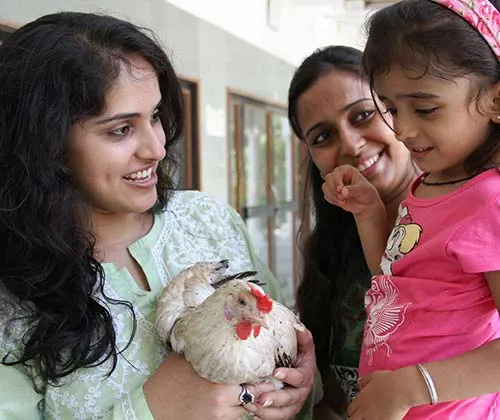
JOIN US
TOGETHER WE CAN CHANGE THE WORLD

